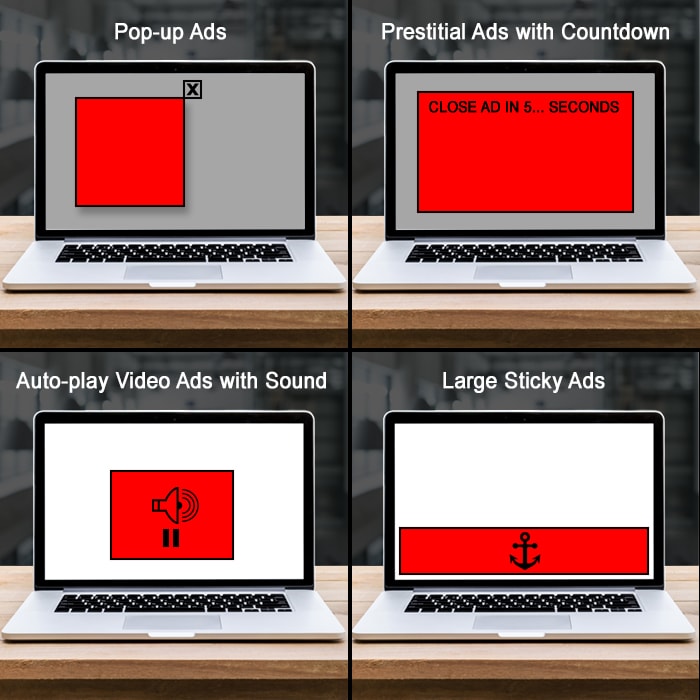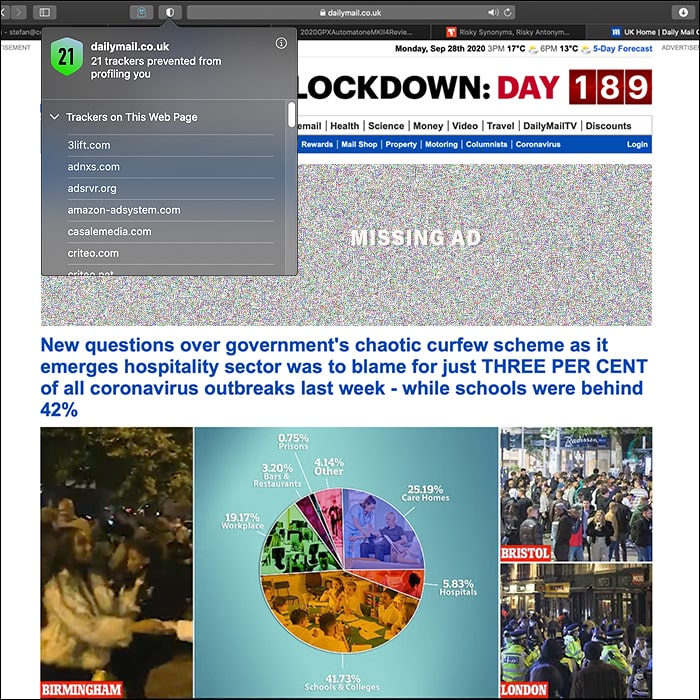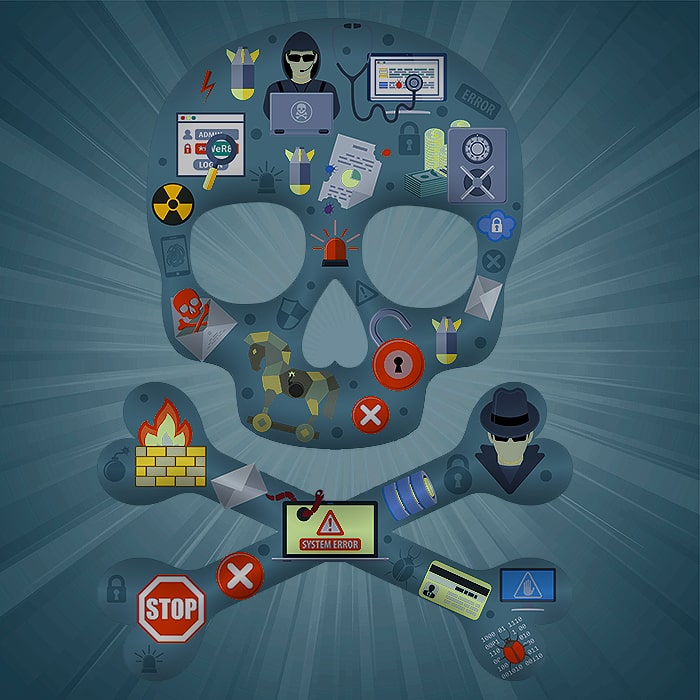UK Culture Secretary is somewhat misguided in his condemnation of Ad Blockers

A recent article in the Guardian quotes UK Culture Secretary John Whittingdale calling out adblocking companies as a ’modern-day protection racket’. By this he is having a go at their ’whitelisting’ services where many of the ad blocking services take payment for whitelisting particular providers - these though can still be screened out by end-users. He cites that ad blockers are putting news delivery services, as well as the music industry in mortal peril and must be curtailed in some fashion.
Yet what he is totally ignoring is how irresponsible, profligate and dangerous many ad service providers have become. The incidence of malvertisements - i.e. dangerous computer viruses and malware spread via dodgy ads is at epidemic levels - and some of these you don’t even need to click on to become infected. These ad networks surreptitiously grab and leverage user data and sell on unregulated to dangerous 3rd party service providers.
For web Users, using an ad blocker is akin to having a vaccine - as it protects you from wholly out of control computer viruses and other dangers, John Whittingdale should be considering this too, and the safety of the many, versus the profitability of the few. Ad blockers do the following for users:
- Protection from viruses, and malware
- Protection from identity and user profile scraping
- Protection from having personally identifiable details sold off to unscrupulous third parties
- Protection from being tracked and targeted across the Internet
- Improvement in page upload speeds and responsiveness
- Reduction of bandwidth costs and improved mileage from 3G/4G data plans
The truth is that most advertising services are serial abusers - blanket bombing users with poorly targeted and wholly unsuitable distracting and disruptive dangerous ads. Some websites are unusable with all their ad services running (20+!) - the page can take 10 times longer to upload as you need to wait for all those 3rd party services to be contacted and connected before the full page materialises.
Another recent piece in The Media Briefing posed the question ’Is news, as a product type dead?’. The answer to that is a resounding ’NO’. Look to The Times, The FT and The Economist for how to provide a valuable news service via a subscription model. I subscribe to The Times, and Spotify and Apple Music - and am more than happy to pay for something of value. I don’t mind the occasional ads for a free service - ones that are sensitively targeted and don’t ruin the user experience. The issue is though that many sites now rely on programmatic advertising - in dealing with 1,000’s of advertisers and very few checks and balances to screen out malvertisements and even check for suitability.
News service providers can be more responsible themselves - in single-sourcing their ads, and properly screening, quality-checking and properly targeting them. Yet there are hidden costs on both sites, as the mobile operator ’3’ has made very clear in proposing to block ad service providers at source - on the account that often more than 50% of 3’s mobile bandwidth is taken up by the serving of ads.
Ads may have started off as pretty wild flowers in their original guise, but they are now largely in the category of Japanese knotweed - a serious danger to the ecosystem. Advertisers created this problem, and even the Interactive Advertising Bureau admits that its members carry a large degree of the responsibility for the current status.
The thing is - the cat is already out of the bag, the Internet advertising ecosystem is already a dangerous place - doing anything here on a fully automated / programmatic basis is going to mean toxic ad exposure. Our Affino Unified Digital Business Platform single-sources ads so that Media Owners can properly regulate their own environments - they are very much the ones responsible for the quality and nature of the advertising - 3rd party providers can no longer be relied on.
Advertising only ever works if it’s closely and delicately targeted within relevant interest streams. It’s one of the many reasons I prefer the Apple Apps Ecosystem over the Android one - as Apple is an arbiter of quality - and everything is screened before it is made available to consumers - even in this case the occasional malware slips through - Android by comparison is the wild wild west - and you have to do very careful due diligence before you download anything from that app store.
Advertisers need to take responsibility for the quality and integrity of the content they serve up - had they been more considerate in their own approach, there would not be as great a need for ad blockers as there now is. Anyone who does not use an ad blocker currently is as foolhardy as one who refuses to get vaccinated for Chickenpox, Measles and Mumps!
Affino is not anti advertising, we’re pro responsible advertising, ideally on a native advertising basis, but if you must run banners, make sure they are high quality, malware-free and absolutely relevant to the target audience which lands on that particular page.

Did you find this content useful?
Thank you for your input
Thank you for your feedback
Upcoming and Former Events
Affino Innovation Briefing 2024
Webinar - Introduction to Affino's Expert AI Solutions - Session #2
Webinar - Introduction to Affino's Expert AI Solutions - Session #1
PPA Independent Publisher Conference and Awards 2023
Meetings:
Google Meet and Zoom
Venue:
Soho House, Soho Works +
Registered Office:
55 Bathurst Mews
London, UK
W2 2SB
© Affino 2024
























